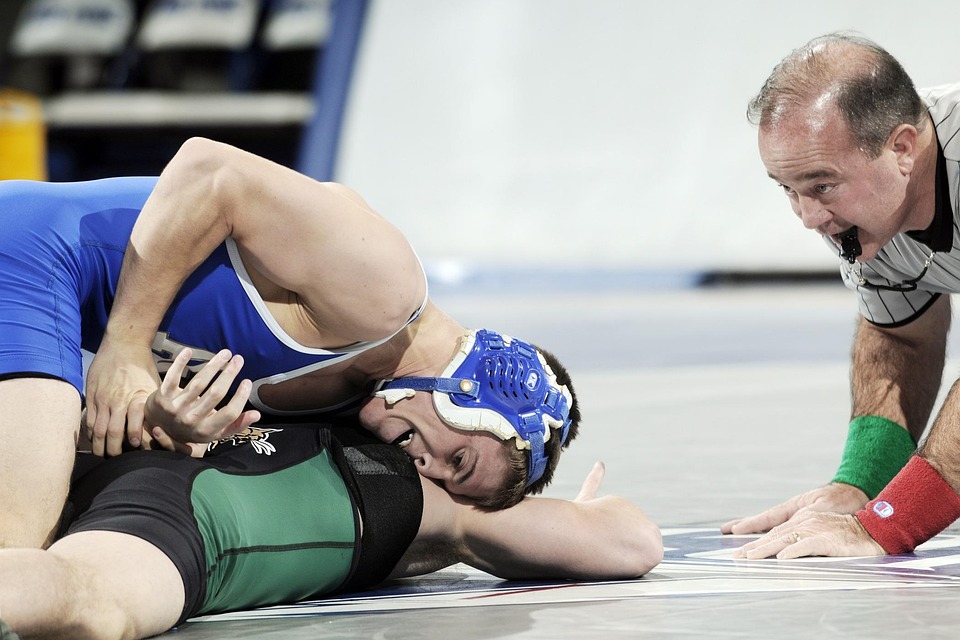When Reality Hits: The Physical Cost of Being a Wrestler
Wrestling has always fascinated audiences with its dazzling displays of athleticism, drama, and storytelling. However, behind the glitz and glamour lies a harsh reality that often goes unnoticed—a myriad of physical costs that wrestlers endure in the pursuit of their craft. The world of wrestling is not just an art; it’s a grueling test of physical endurance, mental strength, and resilience.
The Demands of the Ring
Wrestlers are athletes who perform at the intersection of sport and entertainment. They train rigorously, often spending hours in the gym to build strength, agility, and stamina. But the toll of frequent matches, high-impact maneuvers, and sustained travel schedules can lead to a variety of physical ailments.
From the moment a wrestler steps into the ring, they are subjecting their bodies to intense stress. High-flying moves, body slams, and other techniques that are entertaining to watch can lead to severe injuries. Common afflictions include:
-
Joint injuries: Wrestlers often endure repeated strains and sprains, particularly in the knees, shoulders, and neck. Chronic joint issues can arise due to the repetitive nature of their moves.
-
Concussions: Head injuries are a significant concern, with concussions being common due to impacts that may not seem severe but can have long-lasting effects. The cumulative nature of these injuries can lead to serious cognitive issues later in life.
- Muscle strains: The sudden bursts of strength needed in the ring can lead to muscle tears or strains, which may sideline wrestlers for weeks or months.
The Long-Term Consequences
While the immediate physical toll is substantial, the long-term effects are even more troubling. Many former wrestlers face chronic pain, mobility issues, and other health complications as they age. A survey conducted by the professional wrestler community revealed that nearly 70% of retired wrestlers reported living with chronic pain, while a significant portion dealt with conditions like arthritis and spinal injuries.
The fame, fortune, and excitement of wrestling come at an extraordinary cost. Wrestlers who once performed at the top of their game may find themselves struggling with daily activities in their later years. The risk of addiction to painkillers and other substances, often used as a means to cope with the physical pain, further complicates their health issues.
Mental Health Challenges
The physical toll is intertwined with mental health challenges that wrestlers face. The pressure to perform, maintain a certain image, and constantly compete can lead to anxiety and depression. Wrestlers are often revered in their roles, but this stardom can also place immense psychological strain on them.
Moreover, the unpredictable nature of professional wrestling—where a career can end abruptly due to injury or changes in storyline—adds stress. Many wrestlers juggle their mental and physical health while grappling with an identity that’s closely tied to their performance in the ring.
Finding Balance
In recent years, there has been a concerted effort within the wrestling community to raise awareness about these issues. Organizations and promotions are increasingly investing in health initiatives, providing better medical care, and promoting wellness programs to help wrestlers manage their physical and mental health more effectively.
Wrestlers are also encouraged to prioritize injury prevention and rehabilitation, employing physiotherapists and sports psychologists. The acknowledgment of the physical risks involved in wrestling has led to a shift in training regimens, focusing on sustainability and safety rather than solely on performance.
Conclusion
The world of wrestling is glamorous and captivating, yet the reality is far more complex. The physical cost of being a wrestler is profound, affecting individuals long after they leave the ring. As fans cheer for their favorite wrestlers and marvel at their incredible feats, it’s essential to remember the sacrifices and challenges these athletes face. By fostering a culture of awareness and support, we can honor the dedication and resilience of wrestlers and ensure their well-being both in and out of the ring.



